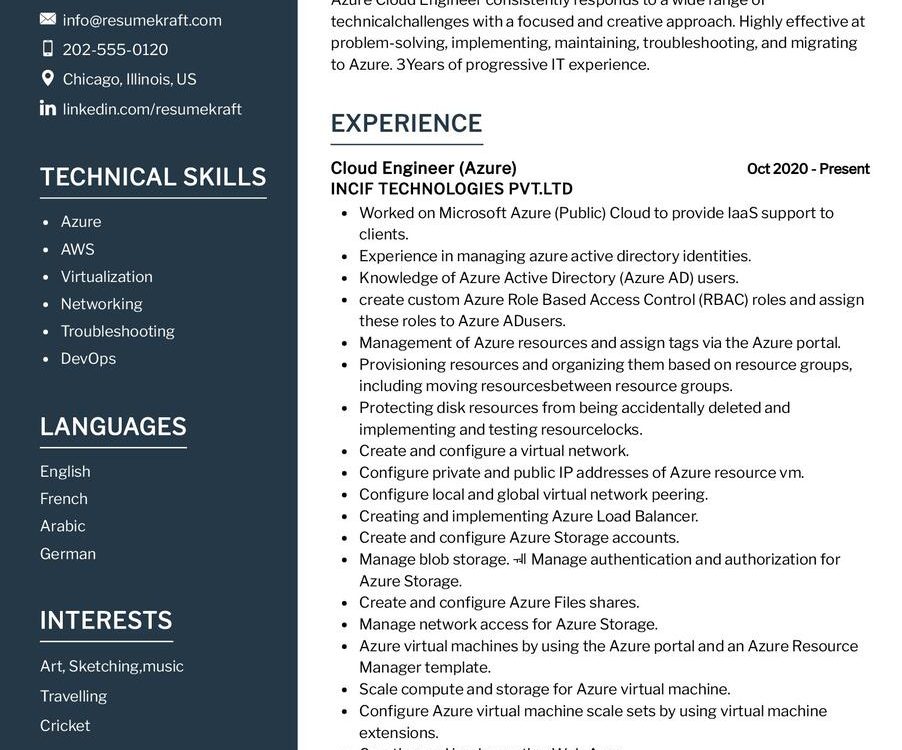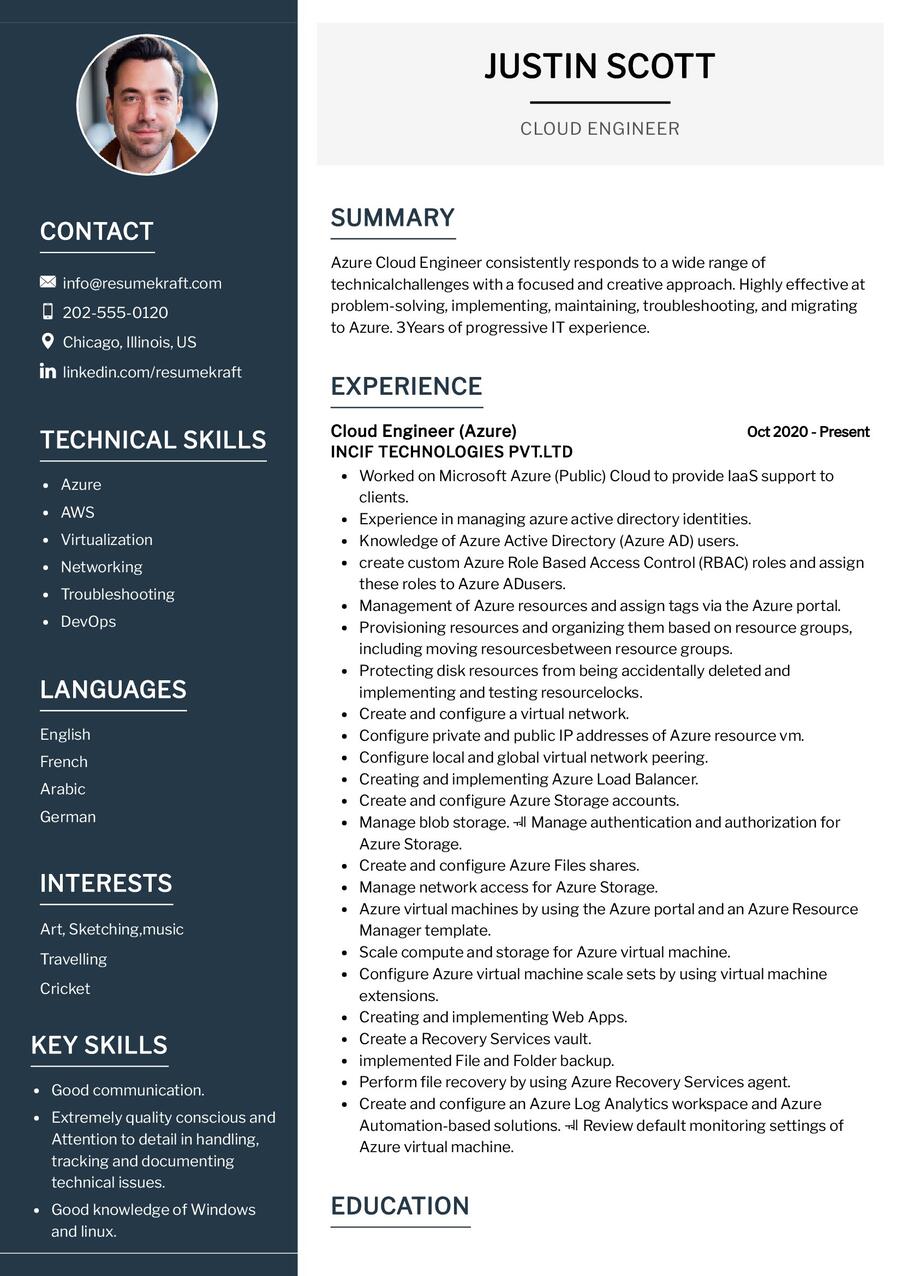Exploring the Role of a Cloud Engineer
In today’s fast-evolving digital landscape, the role of a Cloud Engineer has become increasingly crucial for organizations worldwide. This position blends technical expertise with strategic vision, playing a pivotal role in the successful implementation and management of cloud-based solutions. Let’s delve into the multifaceted responsibilities and requirements that define the role of a Cloud Engineer.
Job Requirements for a Cloud Engineer
Embarking on the journey to become a Cloud Engineer requires meeting specific requirements that demonstrate a deep understanding of cloud technologies and related skills. The path to this role involves continuous learning and hands-on experience. Here are the prerequisites to embrace the role of a Cloud Engineer:
- A Bachelor’s or Master’s degree in Computer Science, Information Technology, or a related field, showcasing a strong foundation in the technical domain.
- Proficient knowledge of cloud platforms, including AWS, Azure, or Google Cloud, demonstrating expertise in deploying and managing cloud-based infrastructure.
- Hands-on experience in designing, implementing, and maintaining cloud solutions, with a trajectory of increasing responsibility.
- Strong problem-solving skills and the ability to troubleshoot issues related to cloud infrastructure.
- Scripting and programming skills, with proficiency in languages such as Python, PowerShell, or Ruby, essential for automating cloud processes.
- Excellent communication skills to effectively collaborate with cross-functional teams and articulate technical concepts to non-technical stakeholders.
- Adaptability to changing technologies and a proactive approach to staying updated with the latest developments in cloud computing.
Acquiring additional certifications in cloud platforms enhances your profile, making you stand out in the competitive job market.
Responsibilities of a Cloud Engineer
The role of a Cloud Engineer is diverse, encompassing a range of responsibilities that contribute to the successful implementation and maintenance of cloud infrastructure. Let’s unravel the core responsibilities that define this role:
- Architecting and implementing cloud-based solutions, considering factors such as scalability, security, and performance.
- Collaborating with development teams to optimize applications for cloud deployment.
- Ensuring the security and compliance of cloud environments, implementing best practices and monitoring tools.
- Managing and optimizing cloud infrastructure costs, making informed decisions to achieve cost efficiency.
- Implementing automation for provisioning and managing cloud resources, improving efficiency and reducing manual tasks.
- Participating in the planning and execution of cloud migration projects, ensuring a smooth transition from on-premises to cloud environments.
- Providing technical support and troubleshooting for cloud-related issues, ensuring minimal downtime and optimal performance.
Each responsibility brings unique challenges and opportunities for learning, shaping you into a well-rounded Cloud Engineer.
Cloud Engineer CV Writing Tips
Crafting a compelling CV as a Cloud Engineer involves highlighting your technical skills, relevant experience, and achievements. Here are some tips to create a CV that stands out:
- Emphasize your experience with specific cloud platforms, detailing projects and outcomes.
- Showcase your expertise in scripting and automation, demonstrating how you’ve streamlined cloud processes.
- Quantify your achievements, using metrics to highlight improvements in efficiency, cost savings, or project timelines.
- List relevant certifications, showcasing your commitment to staying current in the rapidly evolving field of cloud computing.
- Customize your CV for each application, aligning your skills and experiences with the specific job requirements.
Each tip is a step toward creating a CV that effectively communicates your capabilities as a Cloud Engineer.
Cloud Engineer CV Summary Examples
Your CV summary is the gateway to your professional story, providing a snapshot of your skills, experiences, and value. Here are some examples to inspire you:
- “Cloud Engineer with over 8 years of experience, adept at designing and implementing scalable and secure cloud solutions. Proven track record in optimizing costs and improving overall system performance.”
- “Results-driven Cloud Engineer with expertise in AWS, skilled in automating processes and ensuring the security and compliance of cloud environments. Successfully led cloud migration projects, ensuring seamless transitions for organizations.”
- “Experienced Cloud Engineer with a focus on Azure, committed to staying at the forefront of cloud technology. Proficient in scripting and automation, with a keen eye for optimizing resource utilization.”
Each summary serves as a window into your career, offering a glimpse of your journey, your strengths, and your vision as a Cloud Engineer.
Building a Strong Experience Section for Your Cloud Engineer CV
Your experience section is the core of your CV, showcasing the hands-on experience and accomplishments that set you apart as a Cloud Engineer. Here are some examples to guide you:
- “Led the implementation of a cloud-native architecture for a high-traffic e-commerce platform, resulting in a 30% improvement in system scalability.”
- “Collaborated with development teams to optimize applications for AWS, reducing response times by 25% and enhancing overall user experience.”
- “Managed the successful migration of on-premises infrastructure to Azure, ensuring minimal disruption to operations and achieving 15% cost savings.”
Each experience is a chapter in your professional narrative, illustrating your ability to overcome challenges and deliver tangible results.
Educational Background for Your Cloud Engineer CV
Your educational background is the foundation of your career, providing evidence of your formal training and expertise. Here’s how you can list your educational milestones:
- Master of Science in Computer Science, XYZ University, a comprehensive program that laid the groundwork for advanced cloud engineering, 2017.
- Bachelor of Technology in Information Technology, ABC University, the foundation of your technical skills, 2015.
- AWS Certified Solutions Architect – Professional, showcasing your advanced skills in designing distributed systems on the AWS platform, 2018.
Each educational qualification is a building block, contributing to your proficiency as a Cloud Engineer.
Key Cloud Engineer Skills for Your CV
Your skill set is your toolbox, equipped with a diverse range of tools honed over the years. It is a showcase of your abilities, both innate and acquired. Let’s list down the essential skills that a Cloud Engineer should possess:
Soft Skills:
- Problem-solving and critical thinking, essential for troubleshooting and optimizing cloud environments.
- Communication and collaboration, crucial for working with cross-functional teams and conveying technical concepts to non-technical stakeholders.
- Adaptability and continuous learning, given the dynamic nature of cloud technologies.
- Attention to detail, ensuring the security and compliance of cloud infrastructure.
- Project management, overseeing cloud projects from conception to completion successfully.
Hard Skills:
- Proficiency in cloud platforms, such as AWS, Azure, or Google Cloud, with a focus on architecture, deployment, and optimization.
- Scripting and programming skills, using languages like Python, PowerShell, or Ruby for automation and process improvement.
- Security and compliance knowledge, implementing best practices to safeguard cloud environments.
- Cost management, optimizing cloud infrastructure costs for efficiency and budget adherence.
- Networking skills, understanding how to configure and troubleshoot cloud-based networks.
Each skill is a tool, aiding you in providing exceptional cloud solutions and leading your team effectively.
Common Mistakes to Avoid When Writing a Cloud Engineer CV
As you craft your CV, it’s crucial to avoid common pitfalls that could hinder your chances of landing your dream job. Let’s identify and navigate through these mistakes:
- Avoid using generic language; instead, tailor your CV to highlight your unique fit for each specific role.
- Focus on achievements rather than just listing job duties, providing depth and context to your experiences.
- Don’t underestimate the importance of a cover letter; use it as an opportunity to tell your story and connect with potential employers.
- While technical details are important, strike a balance and avoid overwhelming your CV with excessive jargon.
- Always proofread your CV to maintain a professional image and avoid any errors that could raise concerns.
Each mistake is a potential roadblock, so steer clear to craft a CV that is both authentic and compelling.
Key Takeaways for Your Cloud Engineer CV
As we wrap up this comprehensive guide, let’s recap the key points to keep in mind while crafting your Cloud Engineer CV:
- Highlight your experience with specific cloud platforms, emphasizing the impact of your work on scalability, security, and performance.
- Showcase your scripting and automation skills, demonstrating how you’ve streamlined cloud processes for efficiency.
- Quantify your achievements with metrics, illustrating improvements in efficiency, cost savings, or project timelines.
- Include a section on continuous learning, showcasing certifications and courses that highlight your commitment to staying current in the field.
Finally, feel free to utilize resources like AI CV Builder, CV Design, CV Samples, CV Examples, CV Skills, CV Help, CV Synonyms, and Job Responsibilities to create a standout application and prepare for the Cloud Engineer job interview.
Armed with these insights and tips, you are now ready to craft a CV that is a true reflection of your journey, your skills, and your aspirations. Remember, your CV is not just a document; it is a canvas where you paint your career story, a story of growth, learning, and leadership. Best of luck!


